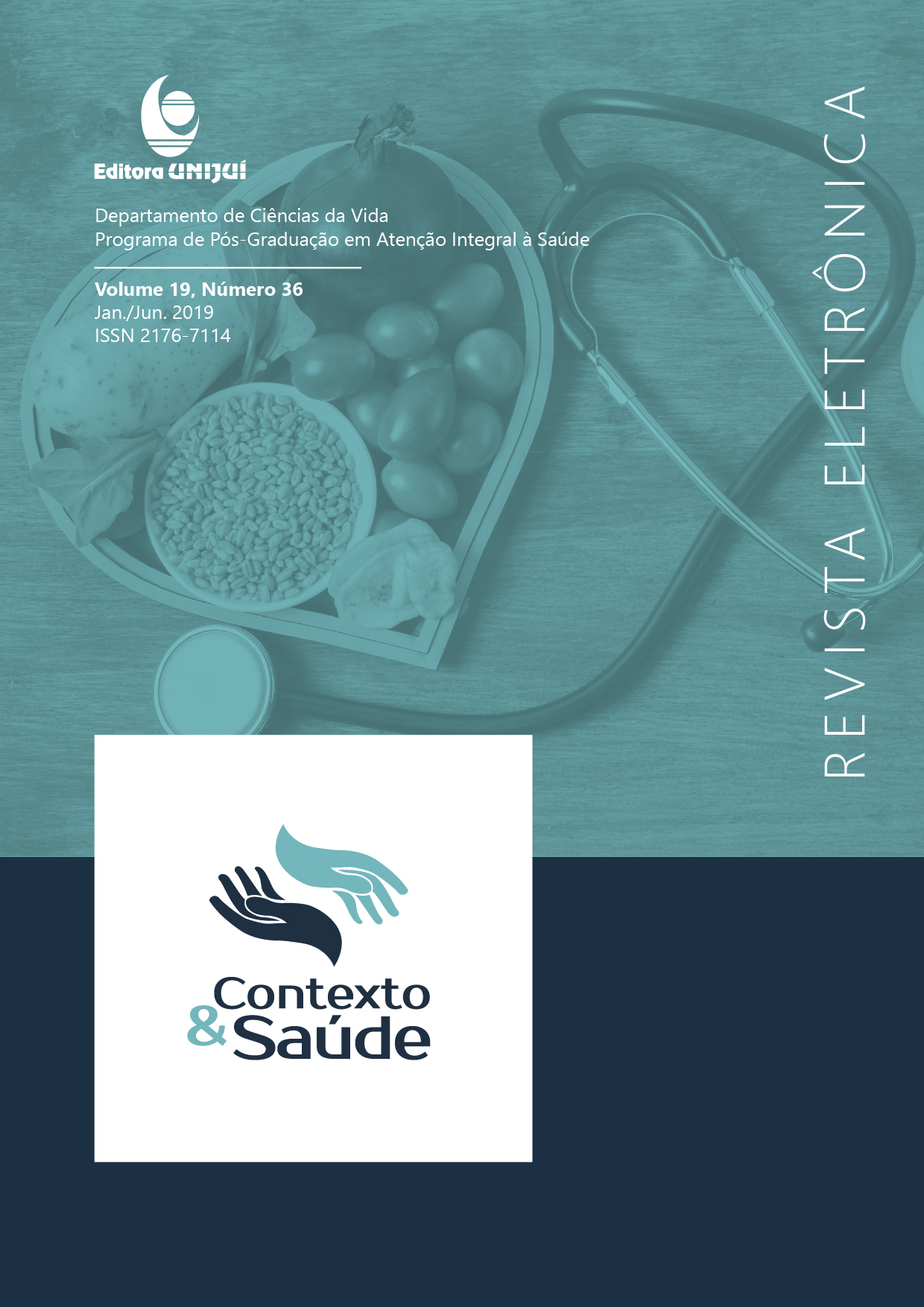PERCEPÇÃO DOS PAIS: MEU FILHO TEM OBESIDADE INFANTIL?
DOI:
https://doi.org/10.21527/2176-7114.2019.36.20-26Abstract
O objetivo deste estudo foi identificar as crianças obesas, frequentadoras de uma escola e verificar os motivos que levaram à obesidade, segundo os pais. Trata-se de uma pesquisa com delineamento transversal, descritiva e analítica. Foi avaliado o estado nutricional das crianças, e através dos resultados entregue questionários aos pais das crianças que tiveram sobrepeso/obesidade. O questionário continha questões a respeito da percepção de peso dos filhos. Participaram da pesquisa 46 crianças. A maioria (52,2%) eram meninos, com idade média de 8,83 anos. A avaliação do estado nutricional, realizada por meio do IMC, demonstrou que 2 (4,0%) crianças apresentavam desnutrição, 5 (11,0%) baixo peso, 23 (50,0%) eutrofia, 6 (13,0%) pré obesidade e 10 (22,0%) obesidade. As associações entre estado nutricional e sexo (p = 0,357), entre estado nutricional e idade (p = 0,752) e entre estado nutricional e idade do início do aumento de peso (p = 0,939) não foram significativas. A maioria dos pais 13 (34,0%) acreditam que a criança tem excesso de peso, mas vai crescer e ser normal. 7 (18,0%) atribui a elevação ao fator genético e de histórico familiar, 6 (16%) admitem que o filho (a) não tem alimentação saudável em casa, seguidas por outros motivos. A maioria das crianças avaliadas (50%) eram eutróficas. Houve pouca percepção dos pais em relação ao excesso de peso dos filhos. A partir desta investigação, se percebe que é necessário realizar uma promoção de saúde e programas de orientação nutricional, que auxiliem os pais na mudança do estilo de vida familiar.
Downloads
Published
How to Cite
Issue
Section
License
By publishing in Revista Contexto & Saúde, authors agree to the following terms:
The works are licensed under the Creative Commons Atribuição 4.0 Internacional (CC BY 4.0) license, which allows:
Share — to copy and redistribute the material in any medium or format;
Adapt — to remix, transform, and build upon the material for any purpose, including commercial.
These permissions are irrevocable, provided that the following terms are respected:
Attribution — authors must be properly credited, with a link to the license and indication of any changes made.
No additional restrictions — no legal or technological measures may be applied that restrict the use permitted by the license.
Notes:
The license does not apply to elements in the public domain or covered by legal exceptions.
The license does not grant all rights necessary for specific uses (e.g., image rights, privacy, or moral rights).
The journal is not responsible for opinions expressed in the articles, which are the sole responsibility of the authors. The Editor, with the support of the Editorial Board, reserves the right to suggest or request modifications when necessary.
Only original scientific articles presenting research results of interest that have not been published or simultaneously submitted to another journal with the same objective will be accepted.
Mentions of trademarks or specific products are intended solely for identification purposes, without any promotional association by the authors or the journal.
License Agreement (for articles published from September 2025): Authors retain copyright over their article and grant Revista Contexto & Saúde the right of first publication.

